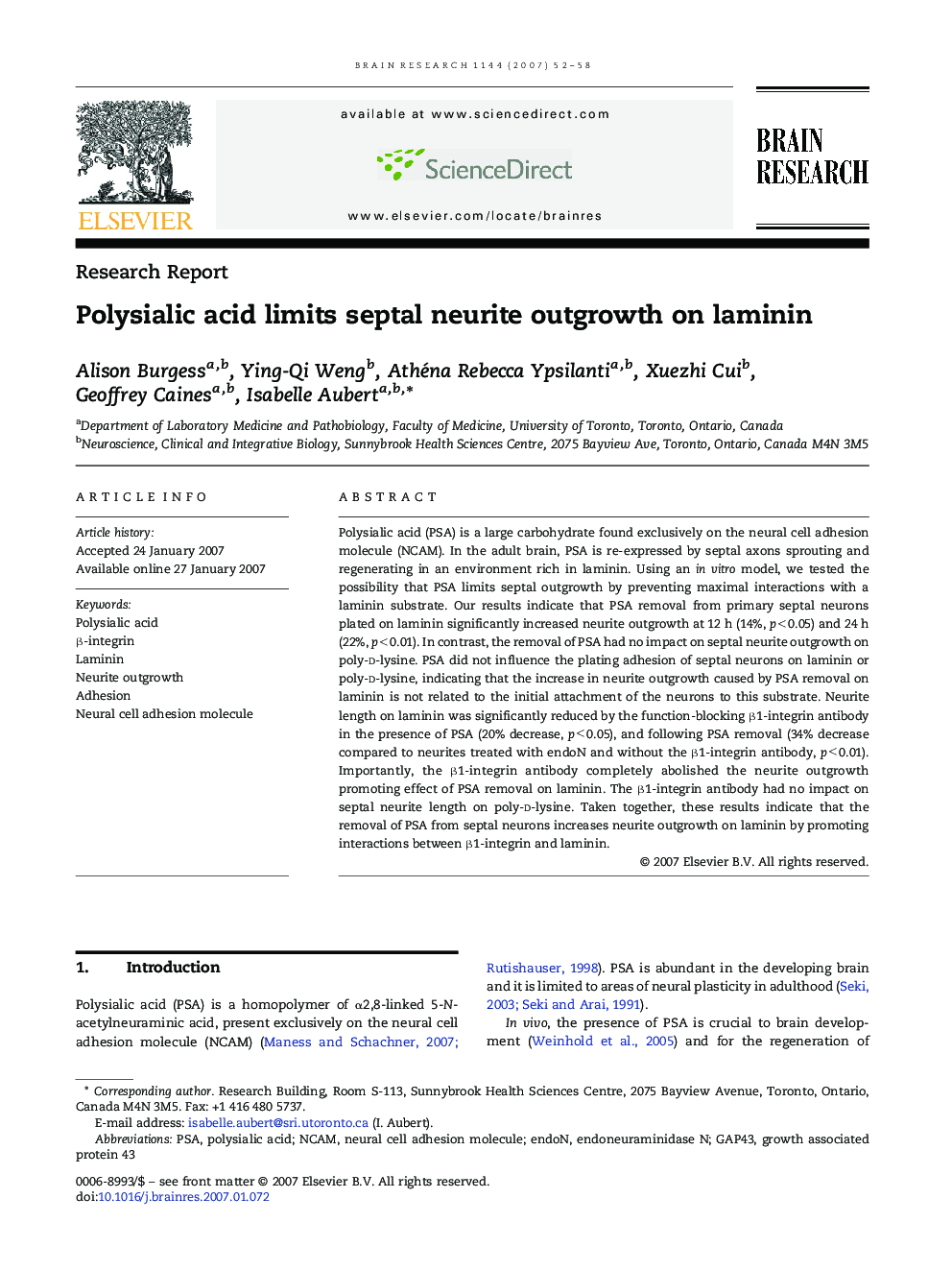| Article ID | Journal | Published Year | Pages | File Type |
|---|---|---|---|---|
| 4331136 | Brain Research | 2007 | 7 Pages |
Polysialic acid (PSA) is a large carbohydrate found exclusively on the neural cell adhesion molecule (NCAM). In the adult brain, PSA is re-expressed by septal axons sprouting and regenerating in an environment rich in laminin. Using an in vitro model, we tested the possibility that PSA limits septal outgrowth by preventing maximal interactions with a laminin substrate. Our results indicate that PSA removal from primary septal neurons plated on laminin significantly increased neurite outgrowth at 12 h (14%, p < 0.05) and 24 h (22%, p < 0.01). In contrast, the removal of PSA had no impact on septal neurite outgrowth on poly-d-lysine. PSA did not influence the plating adhesion of septal neurons on laminin or poly-d-lysine, indicating that the increase in neurite outgrowth caused by PSA removal on laminin is not related to the initial attachment of the neurons to this substrate. Neurite length on laminin was significantly reduced by the function-blocking β1-integrin antibody in the presence of PSA (20% decrease, p < 0.05), and following PSA removal (34% decrease compared to neurites treated with endoN and without the β1-integrin antibody, p < 0.01). Importantly, the β1-integrin antibody completely abolished the neurite outgrowth promoting effect of PSA removal on laminin. The β1-integrin antibody had no impact on septal neurite length on poly-d-lysine. Taken together, these results indicate that the removal of PSA from septal neurons increases neurite outgrowth on laminin by promoting interactions between β1-integrin and laminin.
